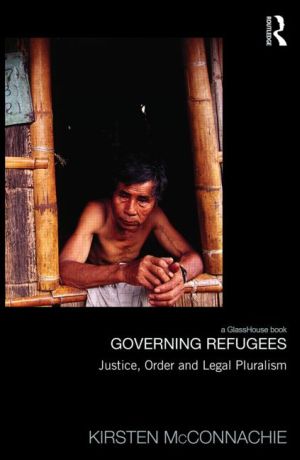
Governing Refugees examines the themes of community governance, order maintenance and legal pluralism in the context of refugee camps. The nature of a refugee situation is such that multiple actors take a role in camp management, creating a complex governance environment which has a significant impact on the lives of refugees but which also speaks to deeply important questions of law and politics, including the production of order beyond the state, justice as a contested site, and the influence of transnational human rights discourses on local justice practice. Focusing specifically on the refugee camps along the Thai-Burma border, this book sheds light on the reality of life in a refugee camp, through exploring the historical evolution and practice of dispute resolution, and examining the ways in which this 'traditional' practice is altered by the influence of new norms encountered during encampment - particularly international human rights law and the law of the host state. Refugee camps are imbued in the public imagination with assumptions of anarchy, danger and refugee passivity. Governing Refugees marshalls empirical data and ethnographic detail to challenge such assumptions, arguing that refugee camps should be recognised as spaces where social capital can not only survive, but thrive.